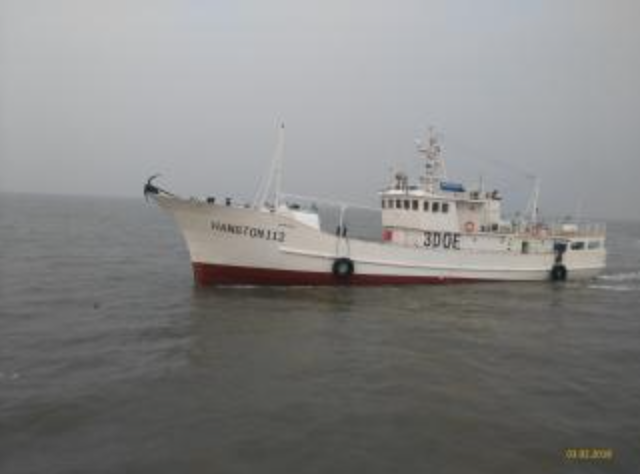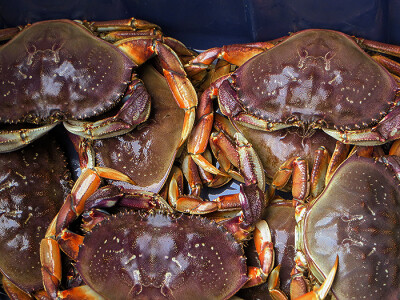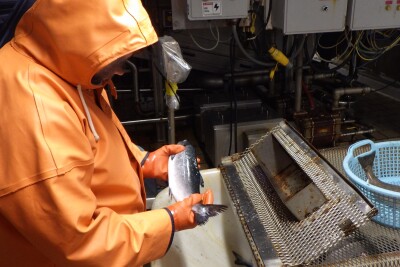U.S. Customs and Border Protection officers will detain tuna and other seafood at any U.S. port from the Hangton No. 112, a Fijian flagged and owned fishing vessel, after investigators found the crew was in forced labor.
“CBP identified at least three of the International Labour Organization’s 11 indicators of forced labor during its investigation: withholding of wages, debt bondage, and retention of identity documents,” according to a statement the agency released Wednesday.
“Foreign fishing vessels like the Hangton No. 112 continue to lure vulnerable migrant workers into forced labor situations so that they can sell seafood below market value, which threatens the livelihoods of American fishermen,” said CBP Acting Commissioner Troy Miller. “CBP will continue to stand up against these vessels’ abusive labor practices by preventing the introduction of their unethically-harvested seafood into the U.S. market.”
The 111.5-foot Hangton No. 112 was built in China in 2017 and operated by the Hangton Pacific Company Pte Ltd. Based in Suva, Fiji, according the Western & Central Pacific Fisheries Council record of vessels.
Jitendra K. Mohan, general manager of Hangton Pacific in Suva, told NF in an email that the Customs and Border Protection action came as a surprise.
“We are very much in the dark on the subject matter. And were surprised to learn about the actions of U.S. CBP,” said Mohan. “We deny the allegation and are in contact with U.S. CBP to remedy the situation.”
With seven blast freezers and fish hold capacity of 46 metric tons, it is captained by a Chinese national master and has a crew of 13, according to the council records. Established in 1998, the company operates 11 vessels specializing in fresh, frozen and canned tuna for export mainly to Japan and the United States, according to Fiji business directories.
“Foreign companies exploit forced labor to sell goods below market value, which hurts law-abiding businesses, threatens American jobs, and exposes consumers to making unethical purchases,” according to the Customs and Border Protection statement. “Forced labor is often linked to illegal, unreported, and unregulated fishing that damages ocean ecosystems and threatens the livelihoods of law-abiding American seafood producers.”
Federal law that “prohibits importation of merchandise produced, wholly or in part, by convict labor, forced labor, and/or indentured labor, including forced or indentured child labor,” allows CBP to detain shipments of goods suspected of being imported in violation of this statute. Importers are not always stuck with suspect products; they can export them out of the U.S., or appeal CBP’s findings.
The agency has been cracking down amid complaints from human rights groups and the U.S. seafood industry. In May CPB issued a withhold release order against China-based Dalian Ocean Fishing Co. Ltd., alleging widespread labor abuses on its vessels.
Since April 2020 CPB has also issued those orders against individual distant-water Pacific vessels CBP has issued Withhold Release Orders on other fishing vessels, including the Lien Yi Hsing No. 12, the Da Wang, and the Yu Long No. 2.







